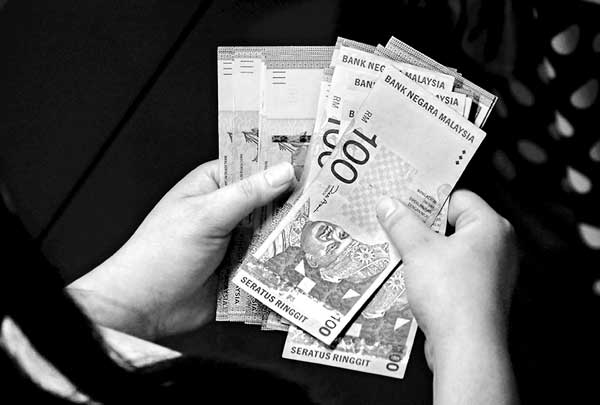Reply To:
Name - Reply Comment

Malaysia’s ringgit and Indonesia’s rupiah led an emerging market rally against the dollar yesterday while Asian equities also pushed higher after minutes from the Federal Reserve’s latest policy meeting suggested it could keep borrowing costs at record lows into next year.
Energy firms tracked a surge in oil prices as hopes for crude demand picked up and ongoing crises in the Middle East fanned supply worries.
The gains across assets come after a painful July-September quarter that saw trillions wiped off global markets owing to worries about the state of China’s economy and an expected US interest rate hike.
On Thursday, minutes from the Fed’s closely watched September policy board meeting showed some members were concerned about China’s struggles, the strong dollar and persistently low inflation.
“Recent global and financial market developments might restrain economic activity somewhat as a result of the higher level of the dollar and possible effects of slower economic growth in China and in a number of emerging market and commodity producing economies,” the minutes said.
Expectations through most of the year had been for the Fed to hike rates by 2016 as the world’s number two economy picks up pace.
However, with China suffering a growth slowdown -- to levels not seen in a quarter of a century -- and other developed and developing economies under pressure, policymakers have held off firing the gun. The chances of a move were hammered in August when Beijing surprisingly devalued its yuan currency, fuelling worries about the Asian economic giant while last Friday’s below-par jobs data also struck a blow.
The minutes lit a fire under struggling emerging market currencies, with the ringgit surging 2.3 percent and rupiah more than three percent higher. The ringgit has soared about eight percent this week, its best five-day run in 17 years.
Talk of a Fed rate rise has hurt emerging markets -- particularly struggling Malaysia and Indonesia -- as dealers have for months been withdrawing cash to the United States looking for better, safer returns.
Energy firms climb
“The latest minutes clearly suggest that international factors are an unusually large determinant of US policy deliberations,” Matthew Sherwood, head of investment strategy at Perpetual Ltd. in Sydney, wrote in an email to clients.
“This, combined with the weak September US nonfarm payrolls report indicate that the hurdle for a US rate hike has increased further, which was music to the ears of investors.”
The South Korean won climbed almost one percent, the Australian dollar was 0.12 percent higher, the Thai baht edged up 0.30 percent and the Taiwan dollar gained 1.0 percent.
Share markets also extended a run of gains as confidence returns to trading floors. Tokyo was up 0.78 percent by lunch while Hong Kong rose 1.6 percent in the morning, Sydney added 0.81 percent and Singapore gained 1.3 percent.
Markets have been rallying for years on the back of loose monetary policies introduced by central banks during the global financial crisis and economists fear any tightening will cut off the money tap, halting a stuttering recovery and lead to another downturn.
Among the stand-out winners on equities markets were energy companies, made more attractive by the advance in crude prices.
Sydney-listed Santos surged more than five percent while in Hong Kong CNOOC was almost seven percent higher and PetroChina added 4.5 percent. Inpex and JX Holdings in Tokyo also rallied.
Crude prices have seen healthy advances in the past week, surging more than 10 percent to multi-month highs as worries about a stronger dollar, a supply glut and weak demand ease.
The market got a shot in the arm Thursday when the head of the OPEC cartel of crude producers -- which represents almost half of output -- said demand will rise more than projected this year.
Yesterday, US benchmark West Texas Intermediate was up 0.50 percent and Brent was 0.53 percent higher, with continuing strife across the oil-rich Middle East providing support.
AFP: